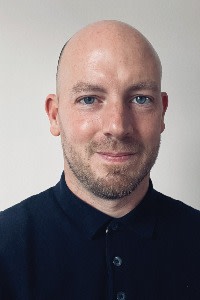My lessons from business school

Roula Khalaf, Editor of the FT, selects her favourite stories in this weekly newsletter.

Nika Drobnič
Slovenian. Master in Business and Organisation, School of Economics and Business, University of Ljubljana. Graduated 2023. Client manager, ultra high net worth clients, central Europe, at Credit Suisse AG, UBS Group, Zurich
Did the course meet your expectations?
I took the MiM to develop my soft skills. I had studied a technical bachelors programme and I like numbers, calculations, tests and individual work. But I knew that in the business world, technical skills are not enough — I needed to know how to communicate effectively, work in teams and take advantage of the diverse skills people bring to the table. I knew the course would be challenging because I am an introvert, [and] you could not complete a project on the course without teamwork. In addition, I was a perfectionist. I was shocked on the first day when a professor asked us to do a final presentation on Friday: we would not have time to perfect it. So the course was quite uncomfortable for me at the beginning, but it enabled me to develop. I now know how to work with different people, and how to present almost anything — regardless of how ready I feel the presentation is.

Esther Vispoel
Belgian. Executive MBA, Aalto University, Finland. Graduates December. HR director, UPM Raflatac, Helsinki, Finland
What are your tips for balancing the course with work and home life?
This was the first time I was confronted with the fact that my energy isn’t endless, that I cannot strive for perfection in everything I do: career changes; studies; sports; social life. I had to manage my time and make conscious decisions about where to excel and where “good enough” is acceptable. The social support from the other students was a huge help. It is also important to crystalise your “why” . . . and choose your electives, business project and self-development actions accordingly. This will help with your motivation and make certain “sacrifices” easier. A third tip is to go all in. The programme will provide you with the tools, but you still need to do the work. You have to work on yourself, which can be quite confronting, before you can work on improving how you lead your team or organisation. Finally, experiment with changing some bad habits, and practising skills you don’t feel so confident in.

Sean O’Shea
English. Executive Diploma in Behavioural Science, Warwick Business School. Graduates 2024. Founder, chief executive, Craft Your Culture, UK
Why did you decide to take the course?
I had left my career in tech and was unsure about what to do next. I found myself less passionate about tech and more drawn towards culture and team performance. When I was working out what I wanted to do, I thought that a good way to explore my curiosity was to take a course. I was debating a few when I saw this one at Warwick and, given how well they do in the rankings, I thought it was a good one to look at. But the initial reason was to help me explore my curiosity and see if I could make a business out of organisational culture and team performance. I felt like my passion and curiosity weren’t enough of a basis to launch a business — I needed something more credible underneath that. The course gave me that and helped me refine my interest into specific areas I wanted to spend time on. I started the course in October last year, and in February I launched my own business.

Sanjin Damjanovic
Norwegian. Cems Master in International Management, NHH, Norway. Graduates 2024. Intern, responsible investment team, DNB Asset Management, Bergen, Norway
What was the most important lesson?
The most important lesson I’ve learnt on my masters is how to cultivate a global perspective and embrace the rich tapestry of diverse cultures and business practices. This journey has given me the ability to collaborate more effectively in teams, improve my communication skills and facilitate deeper, more meaningful dialogues with peers who have different backgrounds and viewpoints. This is not just about intercultural understanding — it has opened up opportunities for me. The ability to work effectively with people from various walks of life enabled me to contribute to projects and initiatives that prioritise ethical and responsible impact with a global view. When embarking on any MiM programme, it is important to maintain an open mindset and be ready to question your own assumptions.

Leon Donald
British. MBA, Alliance Manchester Business School. Graduated 2020. Category buying manager, Tesco, Welwyn Garden City, UK
Did anything surprise you about the MBA?
I was most surprised by how immersive and transformational it was, in terms of honing my strategic thinking alongside strengthening my capacity to apply structured methodologies to problem solving. Taking part in competitions against teams from other schools was the biggest driver of transformation because I was out of my comfort zone. They were very difficult to prepare for because, for the most part, you do not know what you have to do until you arrive. It built my confidence under pressure while improving my ability to deal with ambiguity and work with new, diverse teams, moving at pace and working to everyone’s strengths. My ability to engage with senior leaders improved, thanks to the live consulting projects. For example, I lead the Black Action Plan at Tesco, which has become a strategic priority and is one of our business interventions to promote a more inclusive future.
Comments